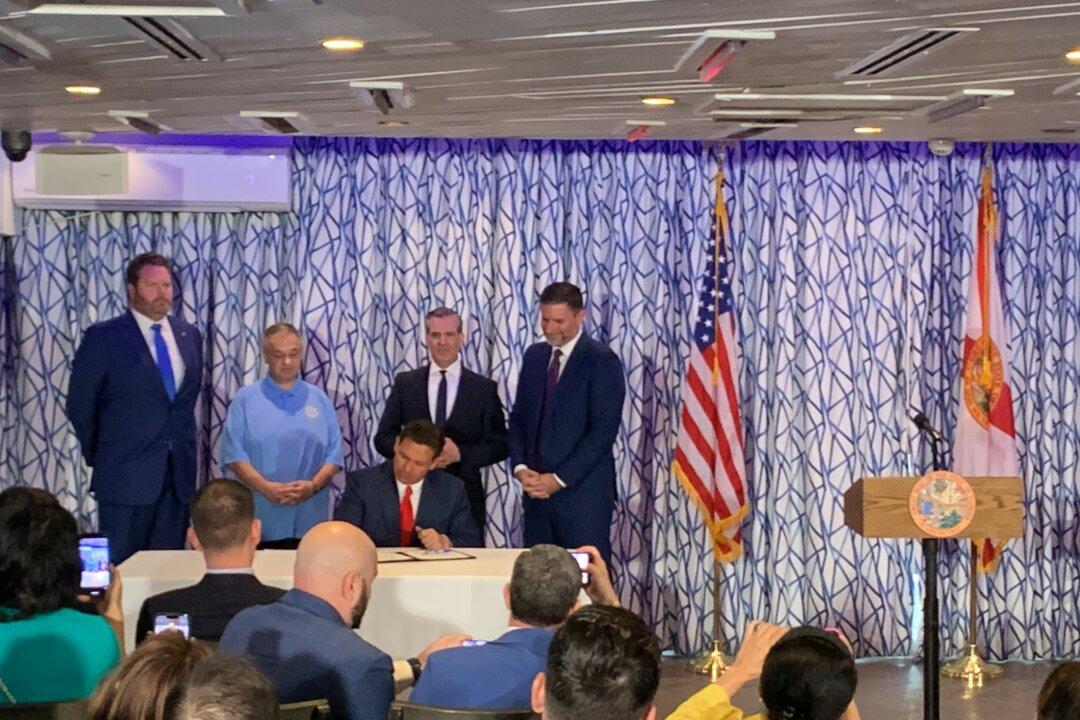MIAMI BEACH, Fla.—Gov. Ron DeSantis chose the Greek restaurant Santorini by Georgios on March 20 to celebrate the signing of HB 1356, which would effectively take homeless people off of the streets of Florida.
In traditional Greek fashion, restaurant owner Georgios Vogiatzis and the governor marked the occasion by smashing plates on the floor.





